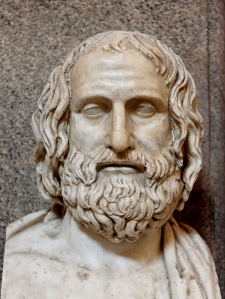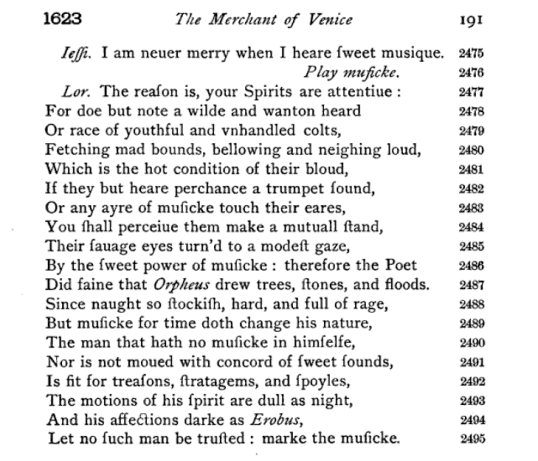One way to review the course of your life is by considering the relationships (think of the Beatles’ “In My Life”) — familial, professional, romantic, &c. — that grow and then perhaps die away (only a very small few escape the latter fate, I think). Naturally, not every person with whom we have relationships will ever be missed — some we’re quite happy to be rid of! — and not every time we miss someone occurs thanks to the dying away of a relationship: this latter case may arise merely due to a physical absence of proximity — even when we can still communicate, but sometimes not even that is possible — that has come about due to a confluence of events putting one person in one place and circumstance, one person in another. And there are, too, times when relationships are thought to be dead or moribund, but there is in either party or both of them a palpable sense of loss, be it a loss of habit, of mere company, of mutual sharing and service, of present and future memory, of sex, or of something else still. Look up the word “miss” in your dictionary and you’ll be reminded of its various meanings, but the one in mind here is “to feel — not merely to notice — the absence of someone.” By nature, that someone is a loved or desired someone, else you would not miss them in the first place!
In English we say, “X misses Y,” where the agent X feels the absence of Y and that relationship is construed with X as subject and Y the object in the predicate (type I), but in some other languages, a different construction is the used, with the missed person (or thing) as grammatical subject and the person experiencing the emotional sensation of that person’s absence in the slot of (in)direct object, that is, the person affected by the agent’s being missing (type II). In terms, then, of the English example above, this comes out as “Y is missing to (the detriment of) X.” Languages with this construction include, but are certainly not limited to, French “elle me manque.” Some languages actually have both constructions, as, for example, Latin with the verb carere (type II) over against desiderare and requirere (both type I), and German “ich vermisse dich” (type I) or “du fehlst mir” (type II). (Ancient) Greek constructions with ποθεῖν would be type I, but with the adjective ποθεινός type II, and Arabic اوحشتِني (awḥaštinī) type II, but (from the same root) استوحشتُ لكِ (istawḥaštu laki) type I.
I’ve already hinted at a Beatles song above, but of course there’s a lot more music of various genres and time periods that hangs on the sharp sensation of another’s absence, whether whole songs, like Johnny Cash’s “I Still Miss Someone” (check out the version from the Dylan/Cash sessions!), or just a line or two, as from “Over the Hills and Far Away,” “Mellow is the man who knows what he’s been missing\\Many many men can’t see the open road.” From Dylan, among those that immediately come to mind are “Girl from the North Country,” “One of Us Must Know (Sooner or Later),” “If You See Her, Say Hello,” and, of course, “Tangled Up in Blue” (“But all the while I was alone\\The past was close behind,\\I seen a lot of women\\But she never escaped my mind,\\and I just grew\\Tangled up in blue…. So now I’m goin’ back again,\\I got to get to her somehow.”). Aside from memories themselves making someone missed, there are even things, things looking backward or things looking forward, that may stoke the reminding flames of another’s existence to us, as is reflected in some lines from “Boots of Spanish Leather”: “I might be gone a long ol’ time\\And it’s only that I’m askin’\\Is there something I can send you to remember me by\\To make your time more easy passin’?” Of course, for the singer, the prospect of those boots and the past is all he’s left with by the end of the song.
Allow me a little excursus: while neither directly nor solely tied to the theme of missing, it does have some bearing on it. Do the people for whom songwriters or poets have written love songs, songs of forlornness, or songs of departure come to mind, more to self-referenced existence, during the performance of those songs and poems (not to mention the initial writing), even years later when that loved one is absent, departed (relationally), or dead? It’s hard to imagine that they do not, but for them as well as for those who hear songs or read their poems, the characters in some lyric narrative may be played by different actors at different times; that is, when someone sings or hears some line like “As long as I love you, I’m not free” (the line is from “Abandoned Love”), the “I” may be the same, but the “you” may have some altogether other referent! When we take part in music, poetry, or other literature, we interpret it and even endow it with meaning according to our present circumstances, the current concoction of our memories and experiences, and those circumstances are, of course, also part of a broader net of human memory and experience (such as the song we’re hearing or the text we’re reading). This is something Gadamer (1900-2002 — apparently his philosophy is good for longevity!) points to in Truth and Method (1960):
The historical movement of human life consists in the fact that it is never absolutely bound to any one standpoint, and hence can never have a truly closed horizon. The horizon is, rather, something into which we move and that moves with us. Horizons change for a person who is moving. Thus the horizon of the past, out of which all human life lives and which exists in the form of tradition, is always in motion. (ET, p. 304).
For the Teutonophiles out there, here’s the original:
Es macht die geschichtliche Bewegtheit des menschlichen Daseins aus, daß es keine schlechthinnige Standortgebundenheit besitzt und daher auch niemals einen warhaft geschlossenen Horizont. Der Horizont ist vielmehr etwas, in das wir hineinwandern und das mit uns mitwandert. Dem Beweglichen verschieben sich die Horizonte. So ist auch der Vergangenheitshorizont, aus dem alles menschliche Leben lebt und der in der Weise der Überlieferung da ist, immer schon in Bewegung. (4t ed., p. 288)
So, while the original person for whom or about whom a song, poem, &c. was written will probably never be out of the author’s memory nor will the person first closely associated with some text or song in the memory of a hearer or reader whenever one comes to any such memory-inducer, that doesn’t mean that their “you,” “she,” or “he” will always reflect the same other person.
While thinking on this theme, in my mind I happened upon the line from the book of Jeremiah, “Rachel, weeping for her children, refused to be comforted, because they are not” (Rāḥēl mǝḇakkā ʾel-bānéhā mēʾănā lēhinnāḥēm ʿal-bānéhā kī ʾēnénnū, Jeremiah 31:15), which was also used to notable effect in an episode of Moby Dick‘s plot. Existentially speaking (and speaking at least partly from a notably selfish viewpoint, which is in any case the commonest way most of us have a viewpoint about anything, whether or not we consider ourselves overly selfish!), those people we miss “are not,” that is, from our own perspective we sometimes cannot consider them other than not here, not around. We are obviously not denying their existence in the bald essential sense, although philosophically even that might be considered: how far do I exist to someone who is not thinking of me, in whose presence I am not, but if I am in someone’s presence actively (not necessarily in conversation) or even if I am being missed by that person and not in their physical or even conversational (including phone, email, etc.) presence, to them am I not in some degree more existent from the perspective of their own view?
These are just some admittedly scattered musings. Feel free to sharpen, polish, or expand them with your own reflections in the comments.

 I recently got a used copy of Hauntings: Tales of the Supernatural, ed. Henry Mazzeo, with illustrations by
I recently got a used copy of Hauntings: Tales of the Supernatural, ed. Henry Mazzeo, with illustrations by 

